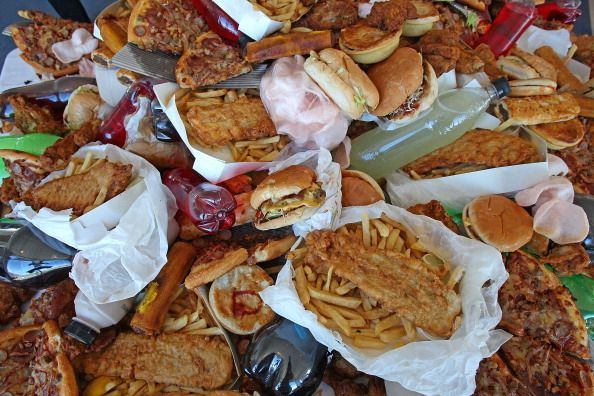Cheat Meals Linked To Eating Disorders In Women, Study Finds
KEY POINTS
- Cheat meals were higher among men, followed by women and trans or gender non-conforming individuals
- The average cheat meal intake was more than one per week
- Men were inclined to protein-rich meals while women preferred dairy, salty, and sweet items
A new study has found that cheat meals are linked to eating disorders in young people.
A cheat meal is often "prohibited food" that is consumed in between diets to satiate the desire for calorie-dense foods. It is seen as a way of taking breaks between diets to control hankering for unhealthy food. However, that one day or even a single meal, of indulgence during a rigorous diet could be doing more harm than good.
While researchers found that cheat meals were linked to eating disorders in women, men, too, were found to indulge in binge eating and fasting.

Cheat meals are often suggested in diet plans and even advertised by social media influencers, but there isn't enough research on the negative effects of these meals on health, according to lead author Kyle T. Ganson, assistant professor at the University of Toronto's Factor-Inwentash Faculty of Social Work.
"Research hasn't fully explored eating behaviors purported to increase muscularity and leanness, such as cheat meals," Ganson said.
They conducted the study to see if cheat meals are associated with "eating disorder psychopathology."
Published in the Journal of Eating Disorders, the study found that more than half of men, women, and transgender or gender non-conforming participants, engaged in at least one cheat meal.
The researchers analyzed data of about 2,700 adolescents and young adults obtained from the 2021-2022 Canadian Study of Adolescent Health Behaviours.
More men were found to indulge in cheat meals when compared to women. A cheat meal with a calorific count between 1,000 and 1,499 cal was the most frequently reported by the subjects.
"Cheat meals have been conceptualized and promoted within men's muscle-building and fitness communities. As a result, men in this study may be strategically using cheat meals to catalyze muscle growth," Ganson said.
As for women, "cheat meals may be used to prevent or curtail binge-eating episodes or alleviate cravings for restricted foods," the lead author continued.
The average cheat meal intake was found to be more than one per week in the past 12 months. More problematically, cheat meal consumption was linked to eating disorders and psychopathology patterns among all participants.
In women, cheat meals were associated with all seven eating disorders. Men, on the other hand, engaged in compulsive workouts, binge eating and fasting. Meanwhile, cheat meals in transgenders or gender non-conforming participants were associated with overeating and binge eating.
Researchers also observed that men were more inclined toward protein-rich cheat meals while women preferred dairy, salty, and sweet items.
"Clinical professionals should be aware of the common occurrence of cheat meals among adolescents and young adults and the sanctioned nature of these behaviors in fitness communities and on social media," Ganson concluded. "Future research should continue to conceptualize these types of eating behaviors and their implications for public health."
© Copyright IBTimes 2025. All rights reserved.





















